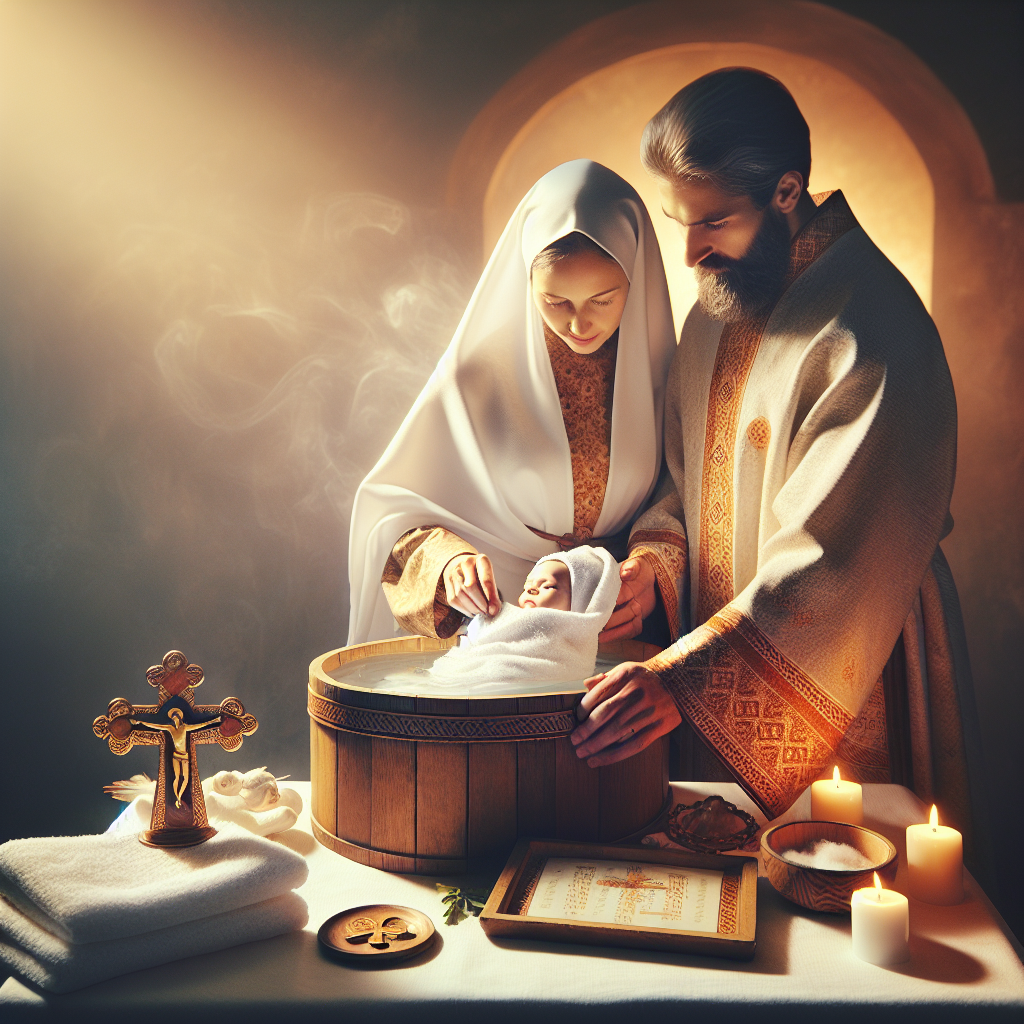Bathing after Baptism: The Meaning and Tradition of the Bath made by the Godparents
Baptism represents a defining moment in the life of an Orthodox Christian, marking not only receiving a name, but also initiation into the spiritual community. One of the rituals that complete this sacred ceremony is bathing, a tradition full of deeply spiritual symbols and meanings. In this article, we will guide you through the essential stages of this custom and provide you with valuable information about the role of godparents in this practice.
The Significance of Bathing after Baptism
Bathing after baptism is not only an act of physical purification, but has an impressive symbolic charge. In the Christian-Orthodox tradition, water is the element that purifies and renews, that erases ancestral sin and gives the baby a new beginning. Bathing after baptism signifies the washing away of original sin and represents the newborn's first step into the Christian world.
Through this ritual bath, the child is entrusted to the holy waters, symbol of eternal life and purity. It is a time when the infant is believed to be under the direct protection of divine forces, receiving the blessing and guidance needed to begin its spiritual journey.
The Role of Godparents in the Bathing Tradition after Baptism
The godparents, carefully chosen by the parents to be the spiritual guides of the child, play a crucial role in the performance of this ritual. According to tradition, they are responsible for performing the first bath after baptism.
It is an honor and at the same time a responsibility, because the godparents become the second set of parents, having the duty to watch over the education and moral growth of the son or daughter. The bath thus symbolizes the first act of care and spiritual protection that the godparents offer to the child.
How does the Bathing after Baptism take place?
Bathing after baptism follows a well-defined script, full of Christian symbols. The process usually begins the day after the religious ceremony. A clean vat is used, in which holy water is added mixed with a little oil and wine, elements reminiscent of the ointment with which Jesus was anointed.
The godparents will gently wash the child's entire body, saying prayers and traditional songs, asking for divine protection and a blessed life for the little one. After the bath, the godparents usually offer symbolic gifts: new clothes, crucifixes or other religious objects, thus marking the beginning of a lifelong bond with their beau.
The Meaning of the Gifts Offered by Godparents
The gifts that the godparents give at the baptismal bath are not chosen at random. New clothes symbolize the shedding of the old garment and putting on a new one, a fresh start. The crucifixes or medallions are constant reminders of the Christian faith and the promise to watch over the child's spiritual guidance.
It is important that godparents select gifts that reflect the true meaning of the moment and have emotional and spiritual value above any material value.
The Importance of Preserving This Tradition
In an ever-changing world, preserving traditions provides an anchor point, a sense of belonging and continuity. Bathing after baptism is a custom that unites family and community, reiterating the fundamental values and beliefs of Christianity.
It is essential that parents and godparents transmit this custom to future generations as an integral part of religious and cultural education. In this way, they not only fulfill their role as spiritual guides, but also ensure the permanence of values that strengthen community identity.
Conclusion
Bathing after baptism is more than just a custom. It is a tradition laden with symbolism, combining sacredness with purity and spiritual protection. Godparents, through their pivotal role, not only participate in an ancient ritual, but also make a promise to be with the child throughout life.
By keeping these traditions alive, we strengthen the foundations of our community and ensure the further transmission of noble values that shape the character and spirituality of our children. It is a precious heritage that deserves to be passed on unaltered, to keep alive the spirit of the Orthodox faith.
If this topic will pique your interest or if you are about to become parents or godparents, we invite you to visit the dedicated section of our website and subscribe to our newsletter for more valuable information.














































































































































